I may get commissions for purchases made through links in this post.
4. Getting Ready For Bed
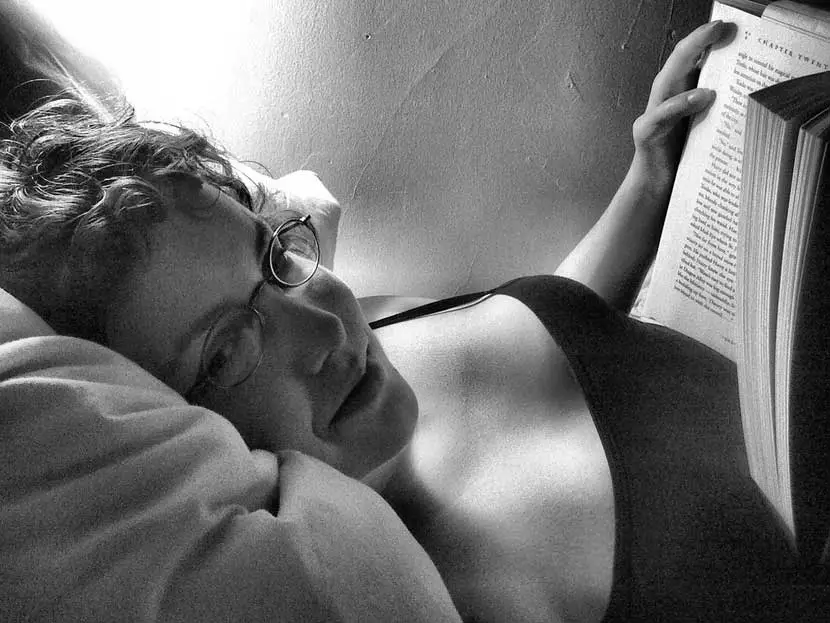
With our busy schedules we tend to be active from getting up until going to bed. You absolutely need some time to wind down though.
Unwind at night
Cut yourself some slack. Switch off the intellectual and emotional “buzz” of the day. Set aside work, arguments, big decisions and other things that weigh on your mind at least a couple of hours before bed.
Having a heated discussion with your partner? Agree to put it on the back burner until you’ve both had a chance to cool off. Just knowing you can still agree on something will make it easier for both of you to sleep soundly.
Write down your worries and to-do’s
The most commonly heard reason we can’t fall asleep? “My mind doesn’t stop thinking”. “I worry about the silliest things”
The solution? Schedule “worry time” and make to do lists.
Lie awake at night worrying about your work-life balance or finances? Spend 10 or 15 minutes every day jotting down anything that’s stressing you out. It makes things less daunting. Add a brief plan of attack for how to handle them.
Make to do lists to tick tasks off your mind. Journaling or reserving some time to give your concerns attention can help you release the stress of the day and leave your mind free to drift off to sleep.
- In a study, published in Behavioral Sleep Medicine, two groups of participants wrote down problems they had. One group also wrote down possible solutions. Those volunteers were more relaxed before bedtime.
Read something relaxing
Whether it’s a spiritual bestseller like The Untethered Soul: The Journey Beyond Yourself, a good biography, or Fifty Shades, reading before bed distracts and helps you fall asleep faster.
Give yourself either a set amount of time to read or a page limit, in case you’re tempted to stay awake to discover what happens to your favorite character.
- Remember, don’t read in bed. The bedroom is for sleeping and sex only.
Lay off the liquids
Regularly have to get up to go to the bathroom in the middle of the night? Have a hard time falling back to sleep afterwards? Drink less during the few hours before bed and be sure to go to the bathroom before turning in.
Put a nightlight or a dim red bulb in the bathroom or get one of those glowing toilet seats. Turning on the bright overhead light can disrupt your ability to go back to sleep.
- It’s often recommended not to drink fluids after 8 p.m. but this may seem a bit Spartan if your bedtime hugs midnight. You don’t want to wake up from being thirsty either. Adjusting your beverage intake according to your nighttime urination habits would be a more sensible rule.
Lowering your body temperature goes a long way
We humans tend to sleep tight, all winter night. Falling asleep is easier when it’s cool outside. That’s because your body temperature naturally drops when it’s time to go to sleep.
- If it’s cold out, open the window or sit in a comfortable chair outdoors for a little while before bed. Or take a cold shower or, even better, an alternating hot and cold shower.
[bctt tweet=”#SleepTip: take time to unwind, write down worries & to-do’s, read, lay off liquids, lower your body temperature ” via=”no”]
5. Reduce Stress & Anxiety
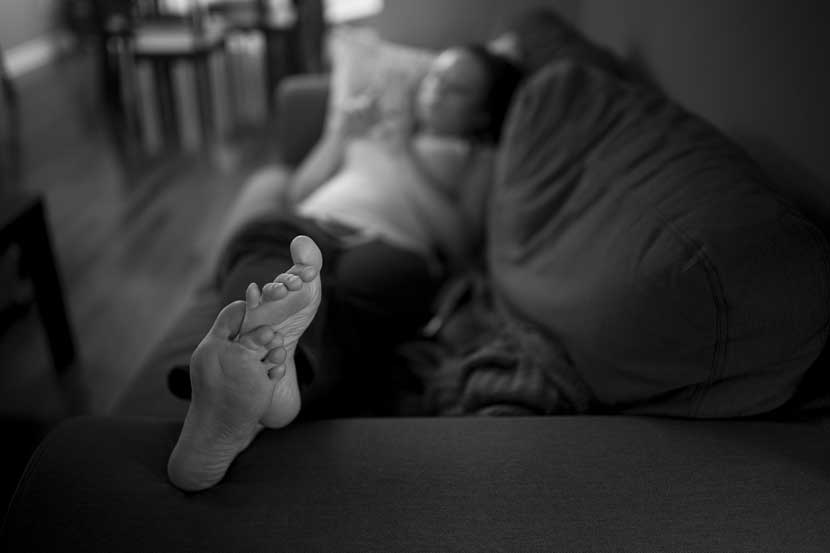
Medication brings our stress levels down but it’s much better for your mind, body and sleep to look for natural ways to handle stress and anxiety.
Pills can have a negative impact on your overall health and simply mask the problem rather than addressing the underlying issues. Save your money. Try these easy stress-reducing exercises.
Use relaxation techniques
- Deep breathing, also called belly breathing is done by contracting the diaphragm, a muscle located between chest and stomach. It mimics the way you breathe during sleep.
- Progressive muscle relaxation are exercises in which you tense and relax your muscles. Often starting with your toes working your way up in your body.
- Meditation uses rhythmic breathing in combination with focus to shut up the eternally attention asking mind. You can use apps or try this free guided meditation by UCLA. Meditation can lower your heart rate, blood pressure, and stress hormone levels. When you are in a deep meditative state, your brain waves look much like brain waves during the early stages of sleep.
- Visualization is a technique in which you imagine places or situations that are relaxing or peaceful. It sounds simple but it works.
Self guided body scans can be your ticket to Dreamland
These are a specific type of meditation.
Consciously squeeze and relax your muscles. Start with your toes, squeeze and at the same time take a deep breath and then relax them as you release the breath while you experience sensations.
Work your way up your entire body, going from the feet to the lower legs, thighs, and so on until you’ve reached your head.
You are shifting your focus from mind to body which is known to help you drift into a good night sleep. Check out these guided body scan audio files by UC San Diego to see if it’s for you.
- A great aid in lowering anxiety and stress levels is The HeartMath Solution. It helps you manage stress during the day which is probably one of the most crucial factors in getting a good night’s sleep.
Don’t hold your breath
Focusing on your breathing is a tried and true meditation practice that can help you relax and fall asleep faster. It helps reduce your heart rate and blood pressure, releases endorphins, and relaxes your body, priming you for sleep. Dr. Breus, a.k.a. The Sleep Doctor instructs;
Inhale for 5 seconds, pause for 3, then exhale to a count of 5. Start with 8 repetitions; gradually increase to 15.
Change your thought patterns (“Do it! Do it!”)
Negative thoughts may keep you up. Cognitive behavioral therapy recommends changing exaggerated, unrealistic beliefs about sleep. Which is not the same as positive thinking.
- When lying awake you may worry that you “will be worth nothing tomorrow at work”.
- A more realistic thought could be: “It’s not a big deal. At least I am resting and I may still get some sleep.”
- Or you may tend to think you “always wake up too early” which may become a self-fulfilling prophecy.
Adopt a more realistic attitude towards sleep, try not to worry about how much sleep you end up getting.
Count your blessings

Participants in a British study who scored highest in gratitude slept longer and better than less appreciative participants. Be grateful, pay attention to, or write down things you’re thankful for.
The surprising benefits of this calming aroma
This may shock you but the popular bedroom scent lavender actually is a scientifically proven sleep-inducing fragrance. It activates your brain’s alpha wave activity leading to relaxation and better sleep.
- Research presented by The Wall Street Journal showed that lavender oil sprinkled on bedclothes helped participants drift off easier and sleep better.
Other studies found that when people sniffed lavender before bedtime, “it increased their amount of deep sleep, or slow-wave sleep,”
Just scents you like can help too.
“Your olfactory system is directly linked to the emotional center in your brain, so when you sniff something that brings back a good memory, your body releases feel-good, relaxing chemicals that can set the stage for great sleep,” says Dr. Natalie Dautovich, an expert on bedroom environment / a good night’s sleep.
Implement lavender aromatherapy as part of a calming bedtime routine. Studies show it improves sleep quality too. Make sure to get a high quality, pure essential oil such as the bestselling, 5 star rated Nature’s Own Essence lavender oil.
- Room diffusers, sprays, fragrant plants, aromatherapy sleeping masks, or fragranced candles are other ways to make use of calming scents. ( Caution: scented candles may emit fumes that are hazardous to our health.)
Listen to binaural beats
Binaural beats affect brain waves and can be used to promote certain feelings or help you fall asleep.
Listen to sleep audio tracks
Sound is powerful. Everything in the universe is essentially vibrations which is why, very simplified, the right sound can help you sleep. Listen to music, relaxing nature sounds, or hypnosis to induce sleep.
- Another trick is to listen to an audio book you already know or find impossible to follow. Since the auditory input is not engaging but distracting it will help you doze off (it’s one that works wonders for me).
Get checked for a sleep disorder
Sleep apnea does not affect only the overweight or sedentary. Anyone can have this disorder. All it takes is a narrower airway than normal which makes it more difficult for you to breathe, which is what wakes you up. You can be checked for it at a sleep clinic.
- Symptoms are daytime sleepiness, (snoring), a dry mouth and sore throat when waking up.
[bctt tweet=”#SleepTip: Use relaxation techniques & calming aroma’s, change thought patterns and count blessings ” via=”no”]
6. Create Bedtime Rituals
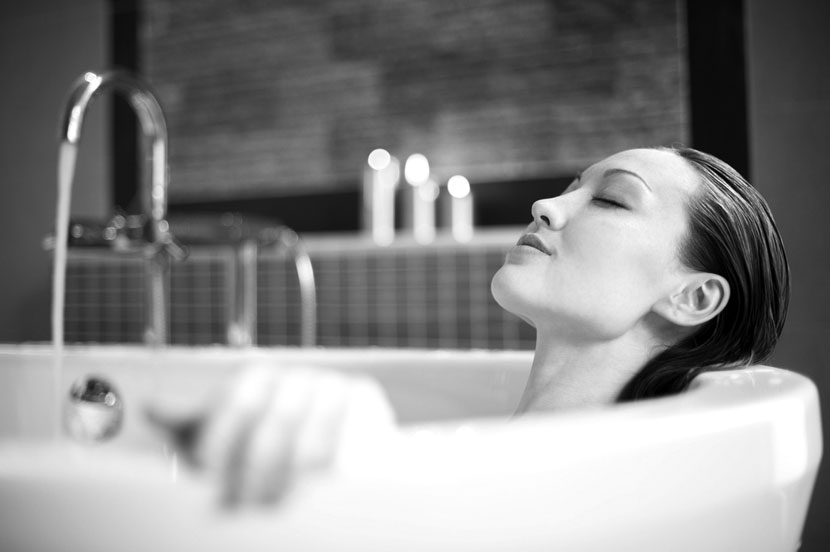
Take a bath or shower
Soaking in a warm bath for 20 to 30 minutes and then cooling off causes drowsiness. A warm bath also relaxes the muscles.
While a bath is best, a warm shower can get the job done too. Joyce Walsleben, PhD, associate professor at New York University School of Medicine recommends on Health.com,
“If you raise your temperature a degree or two with a bath, the steeper drop at bedtime is more likely to put you in a deep sleep.”
Give yourself a massage
Treat your scalp or feet to a 5-minute massage before climbing into bed. Reflexology teaches us that there are many pressure points in these areas. These are linked to subtle energy channels (meridians) throughout the body.
When massaging these neural endings you are getting the most out of a short and simple exercise in terms of unwinding and relaxing.
- Giving yourself an effective mini-massage works. It’s also a great opportunity to make a reciprocal deal with your partner or OKCupid date.
4 Reasons to have sex or masturbate before bed
Sex, with a partner or yourself, trumps many other sleep improvement tactics. Aside from relieving stress and anxiety, sexual arousal can block pain of arthritis, menstrual cramps and headaches. Your brain also releases the hormone prolactin after an orgasm, making you feel more relaxed and sleepy following sex.
- Bonus – Sex is exercise too. You will burn about five calories per minute. Even just hugging and touching can release your body’s natural “feel-good hormone.” Sexual arousal releases a brain chemical that revs up your brain’s pleasure and reward system.
Use acupressure
Studies show acupressure helps some people sleep. Dr Idzikowski, Director of the ‘Sleep Assessment and Advisory Service’ suggests pressing gently but firmly on certain points on your body can help induce drowsiness.
- Press your thumb gently into the indentation that’s between your eyebrows for 20 seconds and then release it for a few seconds before doing it two more times.
- You can also try pressing the area between your big toe and the one next to it on your right foot in the same pattern that you used on your face.
- Another good acupressure point on the right foot is just below the nail bed on your second toe. Use your thumb and forefinger to squeeze that area for a few seconds and see if you don’t notice a marked improvement in how quickly you drift off to sleep.
People with (back) pain praise these methods. By practicing acupressure prior to going to bed pain is relieved and they sleep better. You can also use a stress-reducing acupressure mat.
Listen to music like Pavlov’s dogs to a bell
Sure, music can be calming but there’s more to it. Make a habit out of listening to the same soothing playlist while you’re getting ready for bed. Do this every night and you will “program” your brain into falling asleep.
Classic conditioning, using a stimulus (here the same soothing music) to get a response (falling asleep) is a proven method in all kinds of behavior modification.
Practice Tai Chi or restorative yoga
A gentle Tai Chi or yoga workout doesn’t increase the heart rate a great deal and requires mental focus. Restorative yoga focuses on stillness and a calmer state of mind.
Yoga and Tai Chi are also known to balance the nervous and endocrine system. Tai chi chi is proven effective in improving sleep quality.
Create a herbal sedative
Taking pharmaceutical sleeping pills often causes habits. You become dependent at night and drowsy during the day. Which is why many insomniacs opt for herbal solutions.
- Commonly used are valerian, chamomile and tagara ( part of the valeriana family) to reduce stress and promote drowsiness.
- Or get, Luna, a popular herbal sleeping pill containing chamomile,melatonin, valerian, passionflower, lemon balm and other ingredients.
[bctt tweet=”#SleepTip: a warm bath, a massage, sex, acupressure, Tai Chi, yoga, music & herbs can make you sleepy ” via=”no”]
7. These Daytime Habits Improve Your Sleep

The quality of your sleep isn’t just determined by what goes on after dark. Your overall lifestyle and daily habits can have a big impact on how well you sleep.
Get some sunlight
The sooner on the day the better. Try to make a habit of stepping outside in the morning light for at least 5 to 10 minutes. Early light exposure helps regulate your body clock and can get your day off to an energetic start, as well as reduce the need for a nap later on. Researchers also think it keeps you slim by regulating appetite and metabolism.
- During winter, use a wake up light to mimic dawn and feel more energetic.
Get regular exercise
A good daily aerobic workout (cardio), appropriately scheduled improves slumber. You don’t have to go crazy, just some moderate aerobic physical activity such as a brisk walk around the block for 30 minutes will do too.
- Exercise in any form will burn energy, alleviate stress and reduce your weight, which can contribute to sleep apnea, a major cause of poor sleep quality.
Try to get your workout in earlier in the day and definitely don’t schedule it within 4 hours of your bedtime, since a burst of energy after a workout is fairly common.
- This post-exercise energy is a result of cortisol production, the stress hormone that makes you alert (which is probably why I always slept way past midnight after an evening Krav Maga workout). Learn more about aerobic exercise here.
S-t-r-e-t-c-h
Something as simple as stretching can help fight insomnia as was demonstrated in a study at the Fred Hutchinson Cancer Research Center in Seattle. Women doing upper and lower body stretches for about 30 minutes daily experienced 30% less problems with falling asleep.
Don’t over-nap
Napping has its merits but it can play havoc on your sleep patterns too. Therefore naps should be avoided whenever possible. Or taken wisely. If you want to nap in order to get through your day, or boost your creativity, make it early.
The Mayo Clinic recommends during the mid-afternoon. Keep your nap to no more than 30 minutes. Avoid napping within 8 hours of your bedtime. Feel sleepy in the late afternoon? Fight the urge by going for a short walk or calling up a friend for a chat.
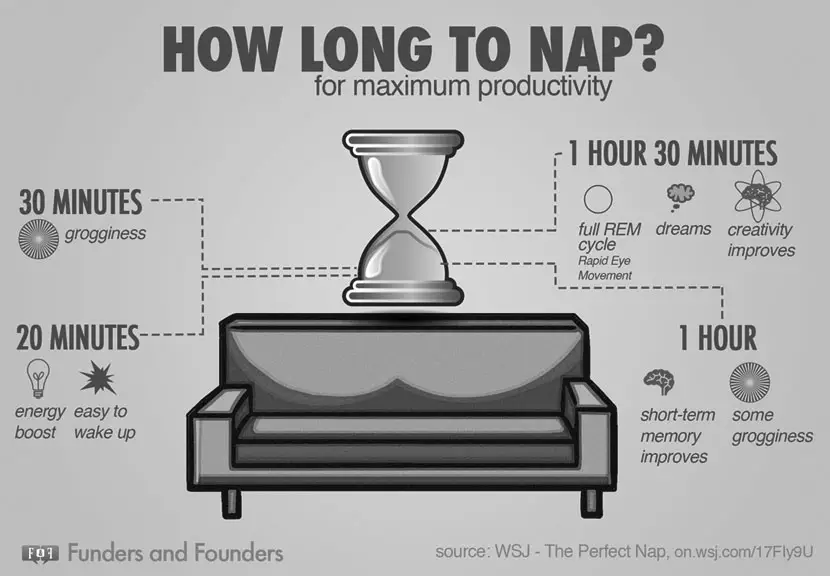
Get off the night shift
It doesn’t matter how many years you’re on it, working the graveyard shift goes against the natural human sleep cycle and can wreak havoc with your health.
The exposure to light all night and then blocking out natural light during the day goes completely counter to getting quality sleep.Talk to your boss about switching to the day shift, but if that’s not an option, be very serious about getting enough sleep during the day.
- Lock your bedroom door to keep family members or roommates out.
- Shut off your phone.
- Setting aside a specific time frame when you simply are not available to others so you can sleep can also help.
Stop smoking (before bedtime)
Nicotine is a stimulant. It will keep you from falling asleep, just as a cup of coffee before bed would. Try not to smoke during at least 4 hours before bedtime to reduce the immediate effects of nicotine.
[bctt tweet=”#SleepTip: Sunlight exposure, exercising and stretching help you sleep. Don’t over-nap. ” via=”no”]









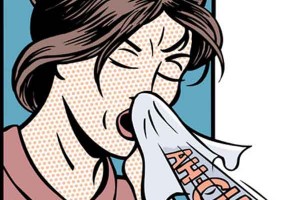

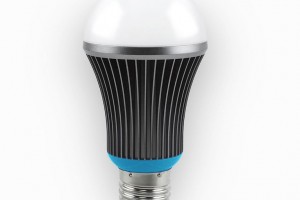
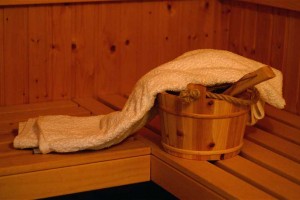


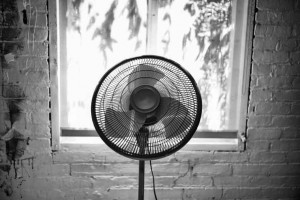







DO NOT order Melatonin Shades. They charged me almost 50% more because they converted the price to US dollars after I ordered. I attempted to return the product and they refused the delivery, so I got screwed. They have since updated their website to show the price in USD, but they were charging CAD before the dollar tanked. So basically everyone (including US consumers) are being charged a higher price because the company thought they could take advantage of currency fluctuations. They’re cheap orange sunglasses- $49.95 CAD is already a bit of a rip off, but I was willing to pay a premium to support a Canadian company. They’re DEFINITELY not worth $49.95 USD when you can get the same, if not better results from an $8 pair of Uvex.